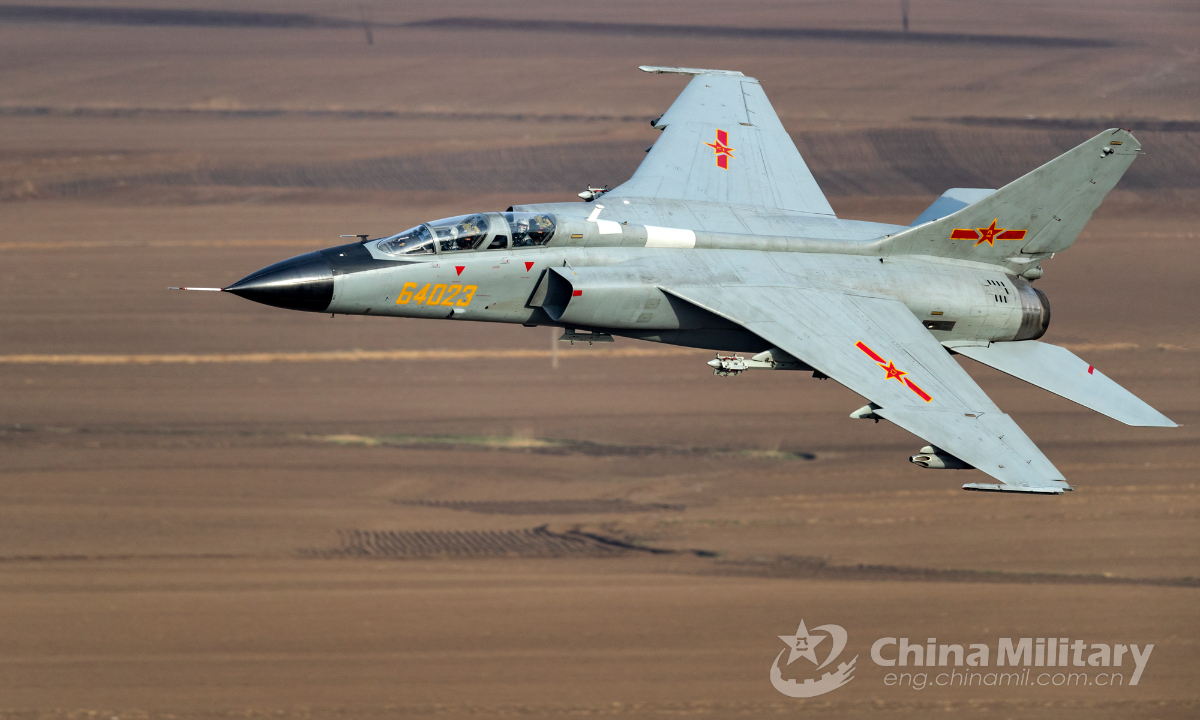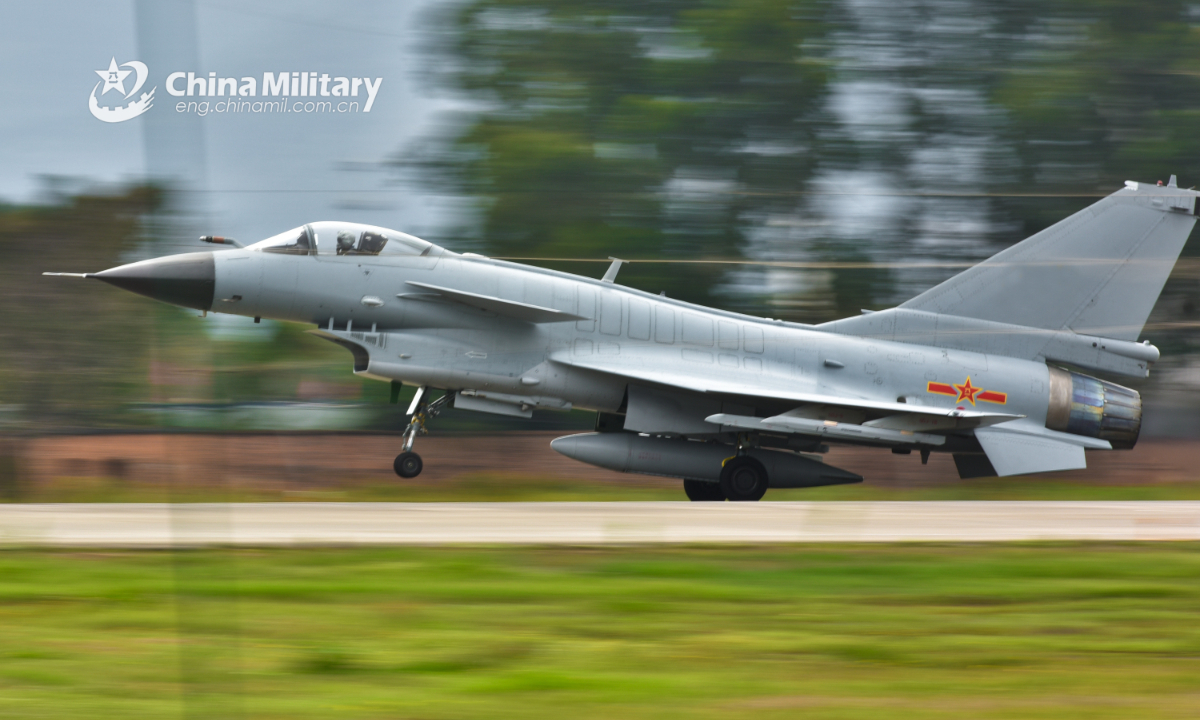
A JH-7 fighter bomber attached to an aviation brigade of the air force under the PLA Northern Theater Command soars through a valley during an extremely low altitude flight training exercise on April 25, 2019. Photo:China Military
China's People's Liberation Army (PLA) Air Force will hold joint air force exercises "Falcon Strike 2022" with Thai military starting August 14, China's Ministry of National Defense (MND) announced on Friday, amid regional chaos caused by external interference in the Asia Pacific region.
To be hosted by Thailand's Udon Thani based Wing 23 of the Royal Thai Air Force (RTAF), the 10-day exercise reflects the deepening military exchanges and mutual trust between the PLA and RTAF, Chinese experts said. They also noted that the exercise will be the first "Falcon Strike" since it started in 2015 that features the PLA's JH-7A fighter-bomber.
According to the MND, the main exercise subjects of this year include air support, ground assault, and force operation. The Chinese Air Force will send fighters, destroyers and early warning aircraft.
Citing a source, Thailand-based Bangkok Post disclosed previously that the PLA is expected to send six J-10C/S fighter jets, a JH-7AI fighter-bomber and a Shaanxi KJ-500 airborne early warning and control aircraft to take part in the exercise. While Thailand is to deploy five Gripen aircraft, three Alphajet attack aircraft and a SAAB 340 AEW early warning and control aircraft.

A J-10 fighter jet attached to an aviation brigade of the air force under the PLA Southern Theater Command takes off from the runway for a combat flight training exercise in late March, 2020. Photo:China Military
The drill is the fifth of its kind since 2015, and the last exercise was held in 2019, also in Udon Thani, media reported. The annual fighter jets exercise was put on hold in the past two years due to the COVID-19 pandemic.
The joint exercise is aimed at enhancing mutual trust and friendship between the air forces of the two countries, deepening practical cooperation and promoting the continuous development of China-Thailand comprehensive strategic cooperative partnership, MND said.
Chinese military expert Song Zhongping told the Global Times on Friday that the upcoming exercise is one of the few large-scale joint exercises in the history of the two countries, with complex training subjects and complete military equipment.
Fu Qianshao, a Chinese military aviation expert, told the Global Times on Friday that it will be the first time that China sends a JH-7A fighter-bomber to participate in the joint exercise with Thailand.
The JH-7A fighter-bomber has a combat radius of about 1,500 kilometers, and it's mainly for conducting long-range air-to-ground strike with self-defense combat capability, Fu said. The participation of Shaanxi KJ-500 would let the RTAF to get a close look at the role of China's airborne early warning and control aircraft and its ability to find airborne targets at long range.
Song said that in the past, there were more confrontational exercises between China and Thailand mainly involving the air force, rather than such air-ground integrated exercises.
As Thailand mainly purchases weapons and equipment from the West and adopts Western training methods, the drills would help China to have a deeper understanding of the equipment performance and tactics of Western weaponry, Song said. "It's also a process of learning from each other. RTAF can experience the changes of the PLA Air Force in recent years at close range, and also make new thinking and choices for its future military development needs."
Nevertheless, experts stressed that the annual exercise should be viewed in a normal way, as its main goal, counter-terrorism, should not be ignored, especially when terrorism is still growing around the world, which is the reason for strengthening military cooperation between China and Thailand.
Despite the US' continuous wooing and pressuring, ASEAN countries, including Thailand, do not want to take sides between Beijing and Washington, let alone become a pawn of the US to contain China, Song said. "They prefer to strengthen political and military exchanges with more countries to ensure the maximization of their own interests."
Considering that both Thailand's navy and army have purchased Chinese weapons and equipment, it is worth observing whether the RTAF will further strengthen its cooperation with China after this exercise, Fu said.
RTAF has not purchased fighter jets from China, but as far as I know, they were very impressed by China's J-10C/S fighter jets during the last joint exercise in 2019, Fu noted.
China and Thailand are good friends and good neighbors. In the face of the complex and volatile regional situation, China and Thailand need to strengthen military cooperation to jointly cope with challenges, Song said, adding that holding such military exercise demonstrates both political and military mutual trust between the two countries, and it's not easy for some external countries to antagonize China by drawing Thailand to its side.





